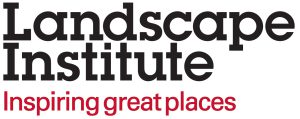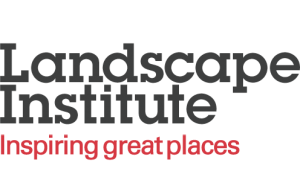As the LI gets ready to prepare for its 90th Birthday in May of this year, this edition of the Journal looks at the human skills at the heart of our work

In the latest issue
Being Human
We speak to five landscape professionals, asking them what ‘human’ skill they best add to projects, where they see skills gaps and what they didn’t learn in their training – but now recognise as vital.
How do we win hearts and minds?
Winning over clients, communities and developers is integral to the landscape profession’s ability to grow, influence and thrive. Communications expert, Jane Bevan, gives some pointers.
What does our next generation need to think about?
What skills should landscape professionals focus on to start their own practice? And how are those skills evolving in the 21st century? Anna French shares her experiences.
Where will the money come from?
Local government funding has taken a 60% hit over the last decade. Economist Alexander Jan looks at how can the landscape sector can innovate to find finance for projects.
How can landscape projects be grown from bottom to top?
What are the issues and approaches that landscape professionals need to adopt to initiate new work? Will Sandy talks through the considerations.
How can we reap the rewards of thinking smaller?
For too long we’ve thought big is beautiful. Mark Shayler tells us how to harness the agility and speed of a smaller business mindset.
How can we support volunteers to learn heritage skills?
How do we inspire, motivate, nurture, support and thank the volunteers that many heritage projects rely on? Linden Groves has some ideas.
Centrepiece
Halifax’s Grade I listed Piece Hall is the sole survivor of the eighteenth century northern cloth halls and the centrepiece in the town’s regeneration. Gillespies’ Warren Chapman looks back on the challenges and opportunities created by this vast open space – and the uniquely human skills needed to transform it.
Collective Vision
Danish architect and urban designer Jan Gehl pioneered a new anthropology-based approach to analysing the movements of the city, which became the foundation for the studio’s work. Jeff Risom is chief innovation officer at Gehl, and tells us how that approach is evolving and expanding in the digital age.
The bigger picture
Anecdotal evidence suggests there is a high incidence of dyslexia among landscape practitioners, who bring good spatial awareness and creative thinking / problem solving to projects. Ashley D Penn tells us why his unique way of processing information has found an ideal home in the profession.
Being bold
Deborah Mulhearn takes a broad look at the landscape profession, asking where the opportunities are for professionals both now and in the future.
Talking heads: how was it for you?
We ask built environment professionals where the opportunities for collaboration and innovation lie…
Standing out from the crowd
In a digital age – with a wealth of information at our fingertips – it’s quick and easy to find out about colleagues, collaborators and clients. So how do you make sure your personal brand shines? Branding consultant Diana Chrouch offers some advice…
Places for people
Community-led approaches to placemaking are creating new roles for landscape professionals, calling for more focus on people-centred design and new ways of working, says Lesley Malone.
The new pioneers
Across the Russian Federation, straddling Europe and Asia, a comprehensive new plan is transforming not just the physical and cultural landscape, but citizens’ relationship with place. The Moscow Street programme blends minute attention to detail with big data to create a forward-looking, historically sensitive plan for the Russian capital’s future.
The Three Cs: The digital skills you need for future success
How can we identify the digital skills of the future? The future world of work demands that we view digital skills as a key building block of all jobs – driving performance and productivity across the board – rather than an isolated set of skills for specific tasks. Futurist Tom Cheesewright points us in the right direction…
Growing professionally
Continuous professional development (CPD) is not just about compliance with professional institute requirements: it is a personalised curriculum to shape your future professional path. What are the optimum subjects and styles to create learning experiences for the future you?
Why building a library is a sign of faith in the future
Planning for the future is an optimistic act. It assumes that civilised life will go on, we’ll continue to live and work in communities that collaborate and support each other. That we trust the next generation to carry on – and to correct the mistakes of our generation, and previous ones.






















